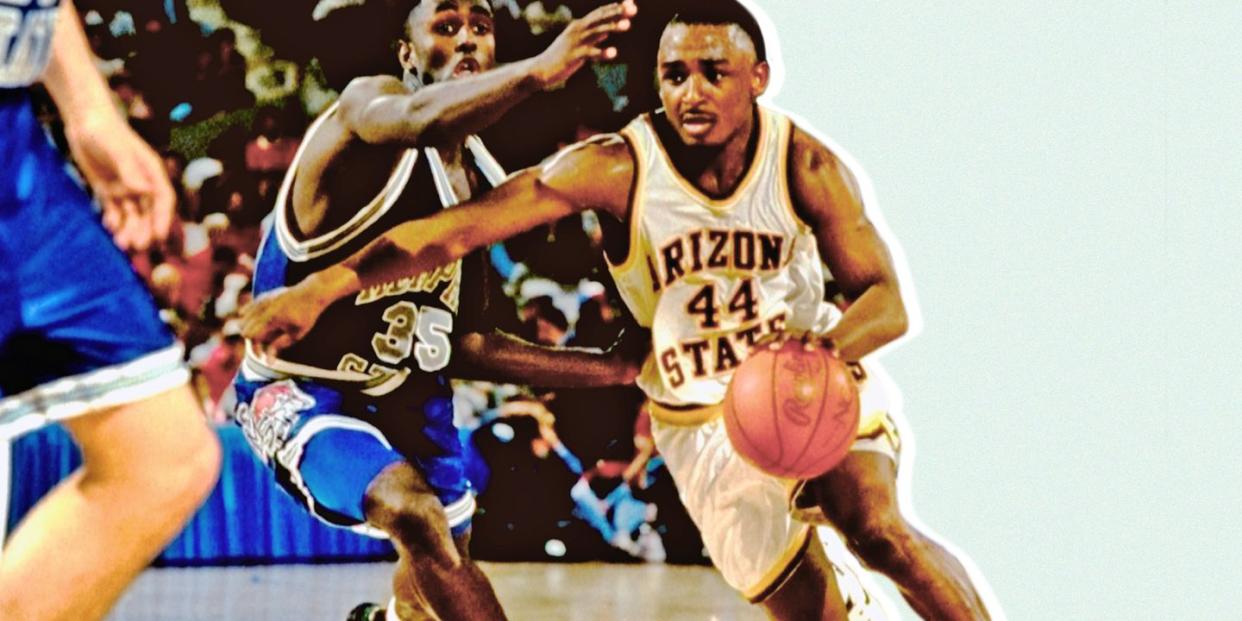How Do We See Arizona State's Point-Shaving Scandal in the New NIL Era?

"Hearst Magazines and Yahoo may earn commission or revenue on some items through the links below."
On first glance, it might be easy to look at something like Netflix's Bad Sport like the latest batch of true crime candy from the streamer. Volume 1 of the sports-doc series, debuted last week, rolling out six episodes that covered some of sports' greatest scandals over the past couple decades, from Luciano Moggi's referee controversy, to the 2002 Winter Olympics' figure skating debacle.
Of the six entries, though, it's Bad Sport's look at 1994's Arizona State point-shaving scandal that transcends the talking-head-true-crime machine. If you need a reminder of the scandal that, at the time, rocked college athletics: Arizona State University's Steve "Hedake" Smith and Isaac Burton got wrapped up with the campus bookie, Benny Silman. Smith allegedly nabbed $20,000 for shaving points against Oregon State. After the season ended, Smith and Burton pled guilty to conspiracy charges, and Silman was jailed for his role in it all. Surprisingly, all three of the major players—Silman, Smith, and Burton—all give extensive interviews in the Netflix documentary.
"So I was just trying to make an easy buck," Burton says. "I didn’t really put no thought behind it, like consequences. I just thought, Hey, I want the money. I want the money. And that’s what I’m paying for.”
"Every time you get a paper bag full of hundreds, it's addictive," Smith adds elsewhere in the documentary. "It changed me. It changed me."
Watching Smith and Burton, especially, open up about financial struggles during their college playing days, it's hard not to think of the obvious, which doesn't come up in Bad Sport: The long, long debate over whether or not college athletes should be paid for their services. Whether the filmmakers intended this or not, the long-standing debate looms over the Bad Sport episode, with the very core of name, image, and likeness (NIL) rights changing only months ago. As of July 1st, college athletes can now make money by selling their NIL rights, the implications of which we've seen spread throughout the game. (If you want an extreme example: Take a look at what Alabama quarterback Bryce Young has been able to do this fall, with NIL deals that are reportedly worth more than $800,000.)
Seeing the former ASU stars reflect on the days when they wondered where their next meal would come from, frankly, brings a new side to the scandal sports fans have openly scoffed at for decades. Would any of this have ever happened if players back then were better taken care of? Of course, Smith, Burton, and Silman should have never messed with college hoops. But, if anything, Bad Sport should have you wondering how many college athletes' lives would've been different if state laws and the NCAA looked like they do now.
You Might Also Like


